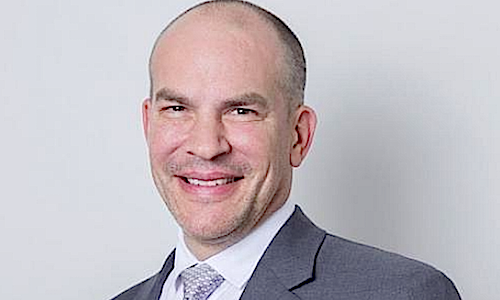Evrard Bordier: «I Don’t Think Size Really Matters»
Consolidation persists in the financial industry, including amongst private banks. Many pundits often say that a certain scale is required to survive. Evrard Bordier disagrees with this view in a conversation with finews.asia.
From around 160 private banks in Switzerland in 2010, there are now just under 100. Mergers of all sizes have occurred from the mega takeover of Credit Suisse by UBS to Vontobel’s recent acquisition of family-owned IHAG Private Bank.
Some pundits believe that consolidation will continue to occur for all banks that lack scale. This is not necessarily true, according to Evrard Bordier, managing partner and CEO of Bordier & Cie (Singapore).
«Many people in the industry say that you need a certain size to be profitable. I don’t think size really matters,» said fifth-generation family member Bordier in an interview with finews.asia. «We achieved profitability some years ago [in Asia] when we had less than $1 billion in assets under management.»
Structure and Cost Discipline
The major reason that size is cited as a prerequisite for survival is due to growing overhead costs in areas like technological developments or compliance with increasingly complex regulations. Although Bordier agrees that there are more demanding requirements in the industry, he also notes that there are cost-efficient solutions.
«The most important thing is to have a size that matches your structure and cost discipline. Today, there are a lot of ways to control your costs, such as outsourcing certain functions,» he explained.
«You can also rely on technology. After Covid, we reduced floor space in our office by leveraging cloud technology. We are making plans to deploy generative artificial intelligence capabilities such as a copilot to gain efficiency for employees or support our investment teams by providing better in-depth review of portfolios.»
Bigger is Not Better
More than just not being an advantage, Bordier underlines that there are trade-offs in becoming a larger private bank.
«Many private banks have become large corporates and there are increasingly very few boutique institutions like us. Naturally, many of them lose their bespoke element,» he said. «A major advantage of being small is you can provide better services and care for a smaller group of clients. In turn, they will be willing to pay for advice when they see the value.»
Credit Suisse's Fall, Switzerland’s Loss
And on Credit Suisse, Bordier believes its collapse is a loss for Switzerland.
«I think the Credit Suisse debacle did not help Switzerland as a whole and that’s really sad because it was a beautiful name that gave diversity to the market. Now we have a mega institution, and I don’t think that this is good for competition or the Swiss hub,» he commented.
Five Elements
According to Bordier, there are five elements that differentiate the 180-year old private bank from rivals: family ownership, innovation, a bespoke offering, agility and reliability.
On family ownership, he highlights that Bordier continues to be an institution with unlimited liability, aligning its interests with clients. The bank also boasts innovation demonstrated by initiatives such as a digital asset partnership with Sygnum Bank. It leverages its smaller size to deliver bespoke solutions and stay agile, in contrast with larger banks that tend to offer more standardized solutions and transform more slowly.
Finally, it has no debt and a strong balance sheet. It engages in Lombard lending but avoids commercial lending, mortgages or premium financing for insurance, meaning that capital will be available «if there is a problem one day» such as issues related to market crashes.
Asia Strategy
In Asia, Bordier & Cie has been present in Singapore for 13 years and it currently has a headcount of almost 50 staff. Its main target markets are Singapore, Greater China, Thailand, Malaysia and Indonesia.
Aside from the offshore business, it also has an onshore partnership with Military Commercial Joint Stock Bank in Vietnam with which it shares its know-how in private banking operations. Bordier is exploring more potential onshore partnerships with a focus on Thailand, mainland China and Taiwan.
No Plans for Hong Kong
Currently, the bank has no plans to establish another office in Asia’s other major hub, Hong Kong. But Bordier does not rule out possible expansion in the future.
«I don’t think there is any competition between Hong Kong and Singapore as the market in Asia is big enough for both,» he observed.
«I traveled to Hong Kong when I was 19 years old as a student and it was my first love in Asia. It’s an amazing center. While we are currently focused on Singapore in Asia, we always keep an open mind and there may be opportunities farther down the line.»



























